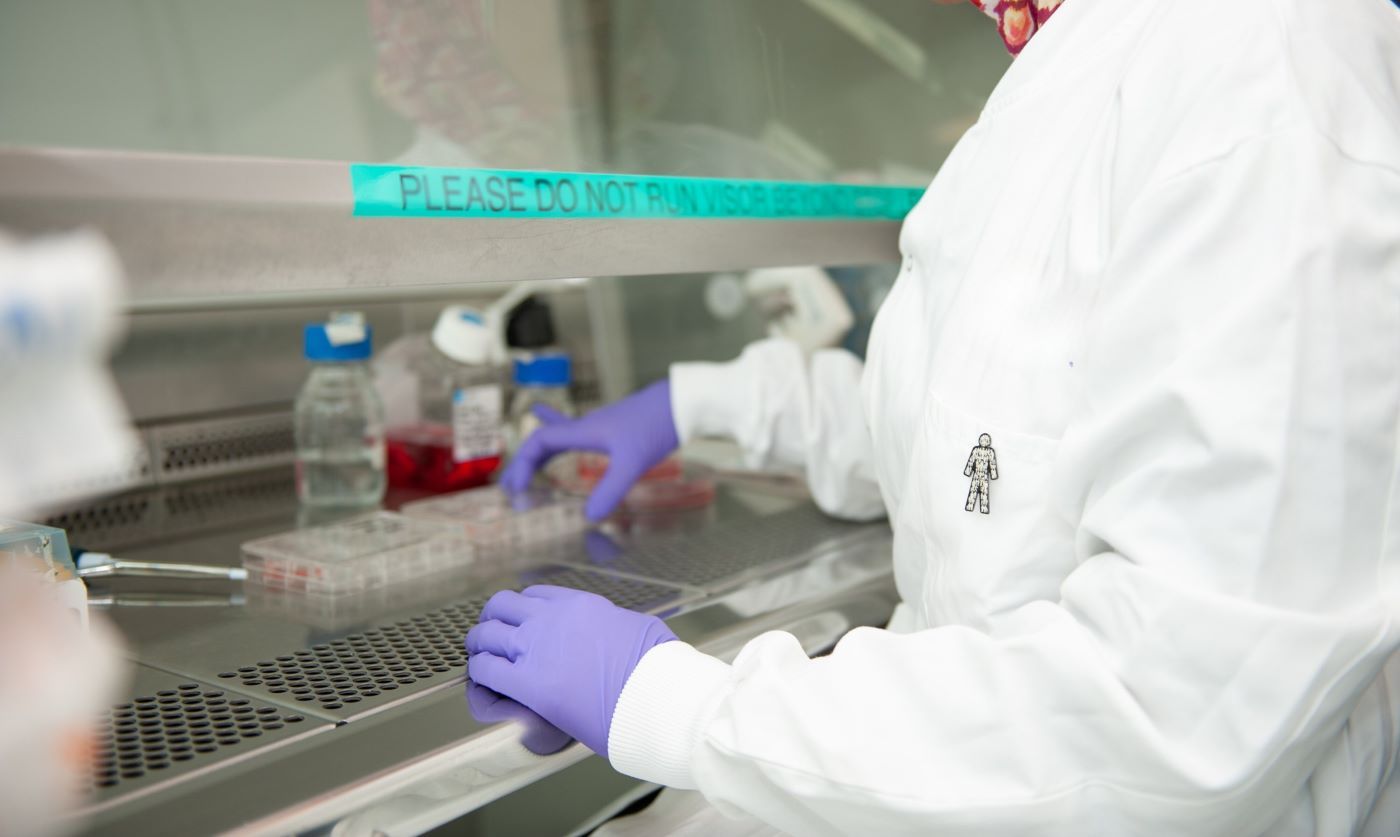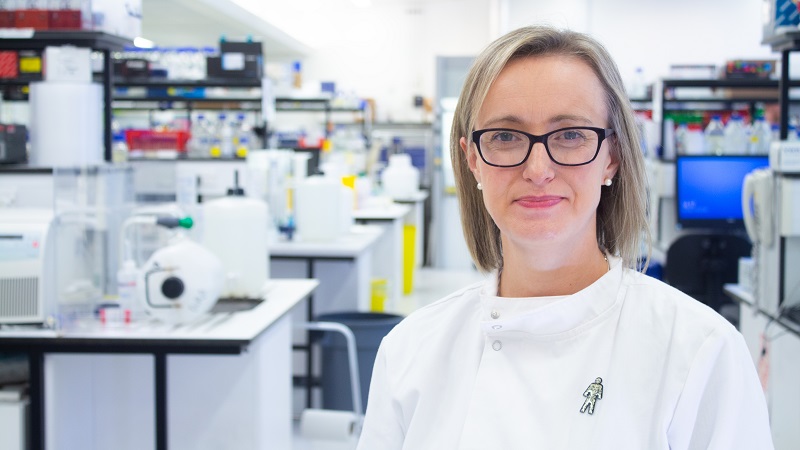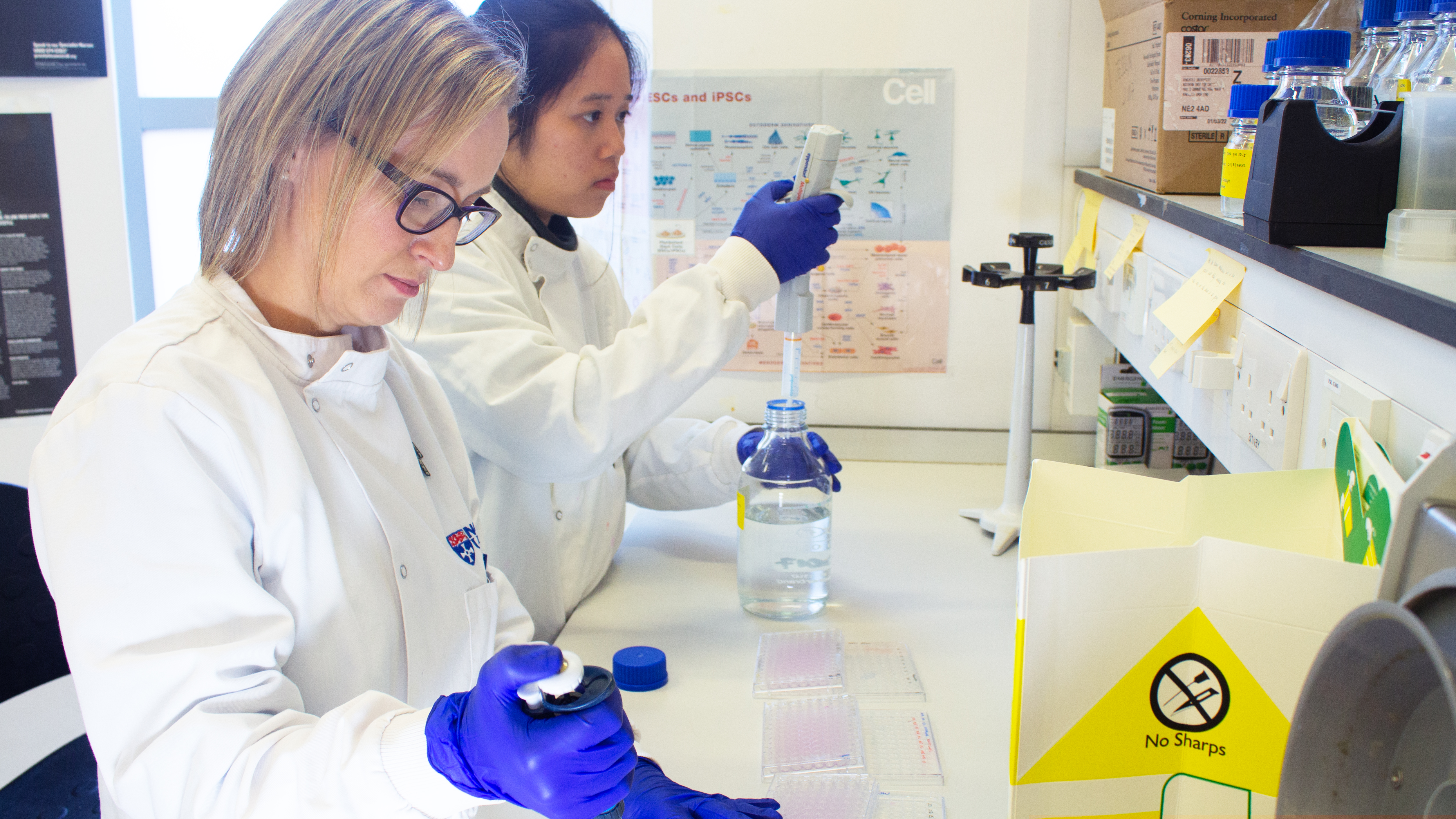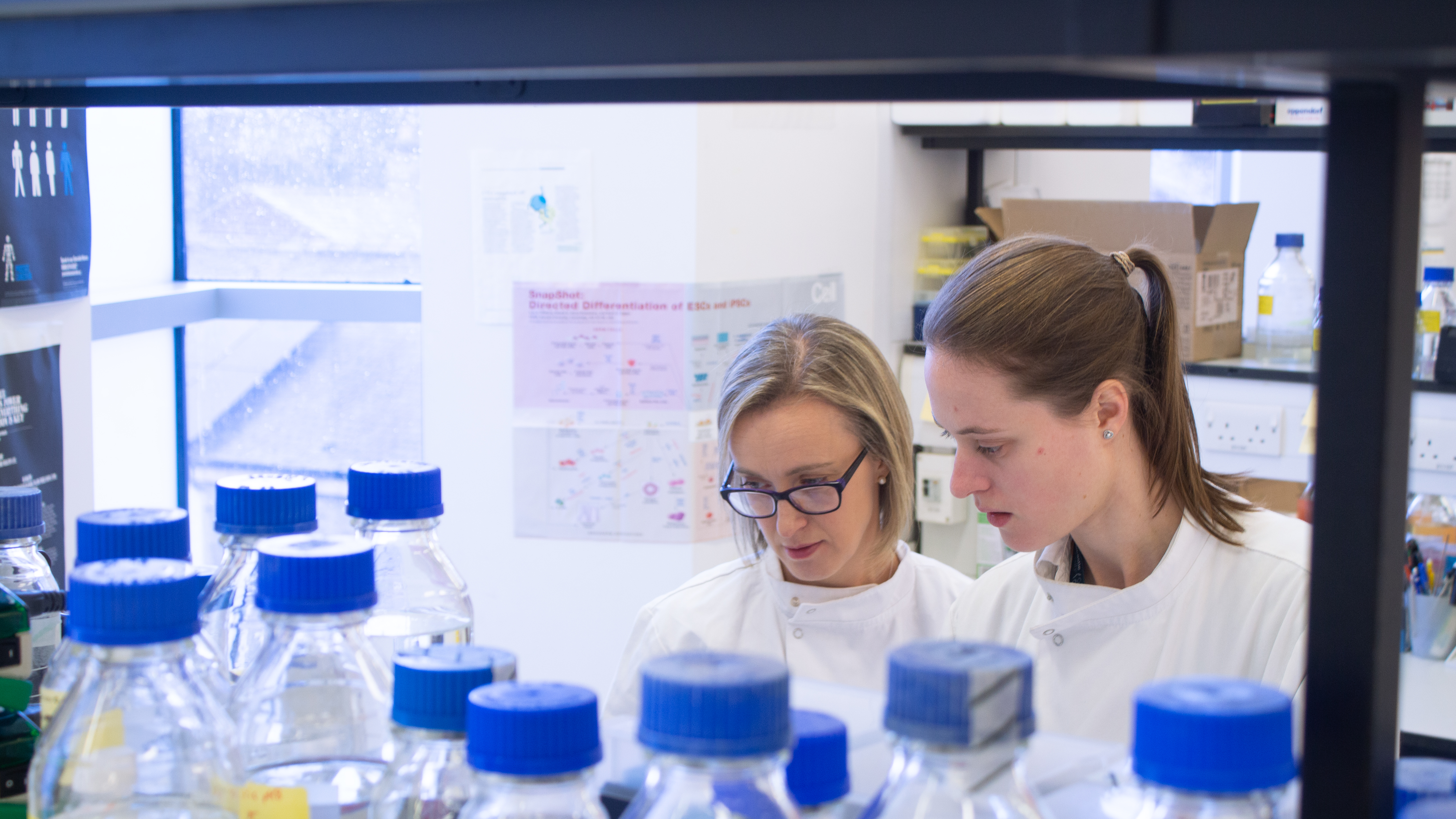
Finding the androgen receptor's accomplices to overcome resistance

Grant information
Institution - Newcastle University
Researcher - Dr Kelly Coffey
Grant award - £688,207
Duration - 2014-2021
Status - Complete
Reference - CDF12-006 Coffey
Finding new ways to treat advanced prostate cancer is vital to improve treatment outcomes and minimise side effects. Our work is the first step in the process to deliver this for patients.
Why did we fund this project?
- Currently, there are few treatment options for men with advanced prostate cancer that has become resistant to hormone therapies.
- As such, Dr Kelly Coffey and her team wanted to understand why prostate cancer becomes resistant, to identify new targets for drugs that could prevent or overcome resistance.
- Most hormone therapies work by stopping a protein called the androgen receptor, which helps prostate cancer to grow and spread, from working.
- Eventually the androgen receptor adapts to be able to work even with hormone therapy, and the treatment stops being effective.
- However, the androgen receptor doesn't act alone - it works together with lots of other 'accomplice' proteins to cause cancer to grow and spread.
- Kelly and team proposed that by understanding these partners-in-crime, they could identify targets for treatments that can prevent or overcome resistance to hormone therapy.
What did the team do?

- The team studied prostate cancer cells to identify accomplice proteins that work with the androgen receptor.
- They used prostate cancer cells where production of these accomplice proteins can be turned off, and observed how this impacted the cancer cells' ability to grow and spread.
What did the team achieve?
- The team identified multiple accomplice proteins that work together with the androgen receptor to drive the growth and spread of prostate cancer.
- These proteins are new potential treatment targets, and the team now want to identify drugs that cold stop them in their tracks, and could be effective for men with prostate cancer that is resistant to hormone therapy.
How will this benefit men?
- New treatments for advanced disease are urgently needed, to help men control their cancer for longer.
- The team have identified new targets for treatments that could help men with advanced disease that is resistant to hormone therapy.
- The team are now studying these targets further, aiming to identify drugs that could be tested in clinical trials.

Help us fund more lifesaving research like this...
Your support helps us fund pioneering research, so we can work towards a future where men's lives aren't limited by prostate cancer.


